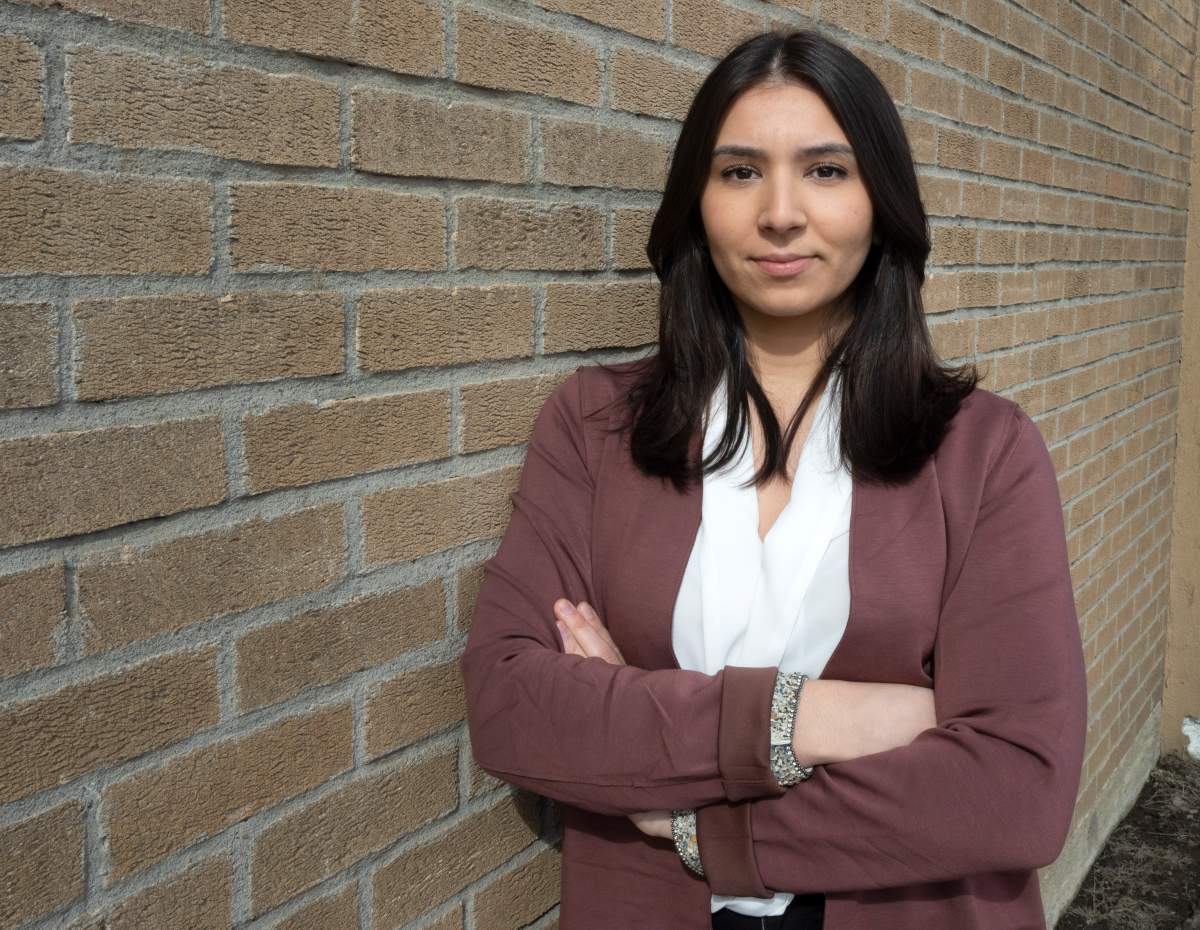Miriam Ikhlef felt like she had everything she needed to become a police officer.

A graduate of the Université de Montréal’s security and police studies program, she’d been working as a 911 dispatcher for the Montreal police service for 13 months, even earning a commendation for how she handled a call involving a barricaded, suicidal man.
But in June 2021, her dream fell apart. After passing almost all the necessary tests, she was told she had failed the security check — without any explanation of why. Five days later, she lost her job as a dispatcher when her security clearance was revoked.
“To me, there’s no reason why my candidacy wouldn’t be accepted for a police officer. I passed all the requirements,” she said in an interview Thursday.
“What I want right now, and what I need, is a revision of the decision behind my security clearance because they are totally false.”
Ikhlef, who said she has no criminal record or criminal ties, said the only reason she can think of for the security clearance denial is the deportation of her uncle, Mourad Ikhlef, in 2003 because of alleged terrorist ties.
Miriam Ikhlef, 26, said she never knew her uncle, who was acquitted by an Algerian court.
This week she wrote to Montreal Mayor Valérie Plante and the city’s police chief asking for their help. She believes that police Chief Fady Dagher, who was sworn in this year, will understand what it’s like to be judged a risk because of an Arabic name and heritage.

Get daily National news
“I believe he’s the right person to understand what kind of situation I’m going through because he admitted himself to being a victim of profiling at the border,” Ikhlef said. “I think he knows how it feels to be judged and treated as someone you’re not.”
She said she attempted through an access to information request to learn more about why she failed her security clearance, but the request was denied on “national security” grounds.

During an interview for the security clearance, she said she was asked by police whether she goes to a mosque and why she decided to attend Collège de Maisonneuve — a question she believes was because the Montreal junior college once rented space to a controversial Islamic educator who has been alleged to have ties to terrorist groups.
She said she went to the college because it is one of the best in the city and has a police technology program.
Her firing has hurt her ability to work in her chosen field — especially because it was related to a security clearance, she said.
“Every time I apply for a job, how am I going to explain that I’ve been dismissed?”
Ikhlef sued the city and the police service, but even though a Superior Court judge described her situation as “surreal” and wrote in his December decision that he sympathized with her, he said the case has to be heard by a labour arbitrator.
An arbitration session is scheduled for October.
Guylaine Dionne, the president of the union that represents 911 dispatchers and other white-collar city workers, said its goal is to get Ikhlef reinstated with financial compensation.
“This file raises serious human rights issues that we are watching closely, in particular: when employers dismiss employees without giving clear reasons under the pretext of secrecy related to security investigations. It also raises the question of how much the Plante administration is aware of these practices and condones them,” she wrote in an email.
But Ikhlef said she doesn’t want to wait and worries that the hearing, which has already been delayed once, will be delayed again.
“I want the police department to stop treating me as if I was a terrorist, as if I was some kind of threat to national security, because I am not that. What I am is a Montreal citizen who served my community. I was doing my job with integrity, with dedication and that’s who I am,” she said.
Montreal police declined to comment on the case, citing the confidential nature of employee files and the upcoming arbitration. A spokeswoman for the mayor did not respond to a request for comment on Thursday.







Comments